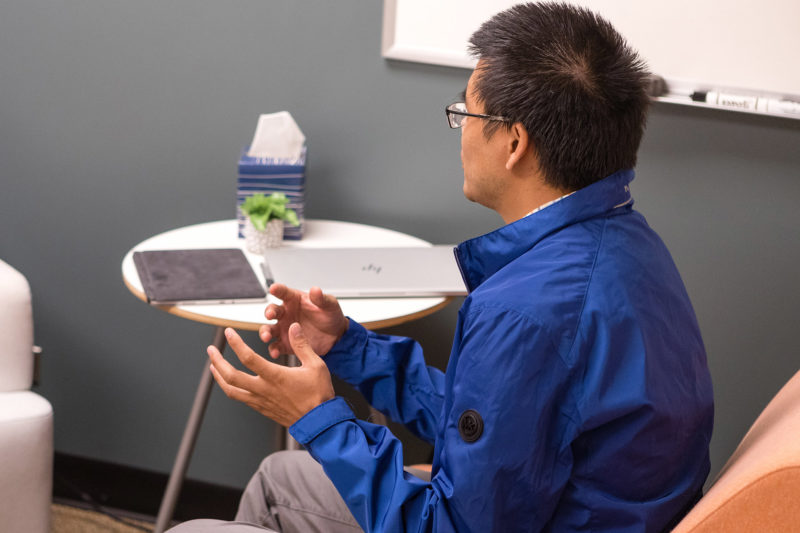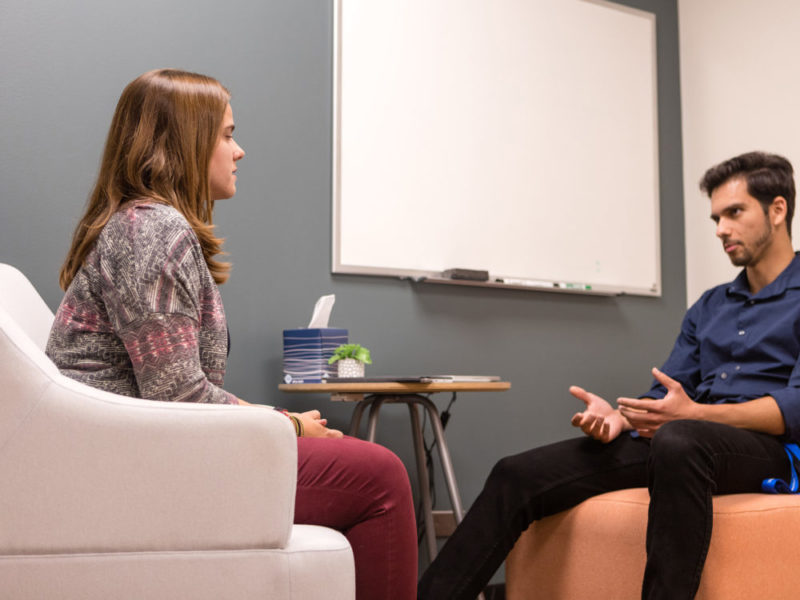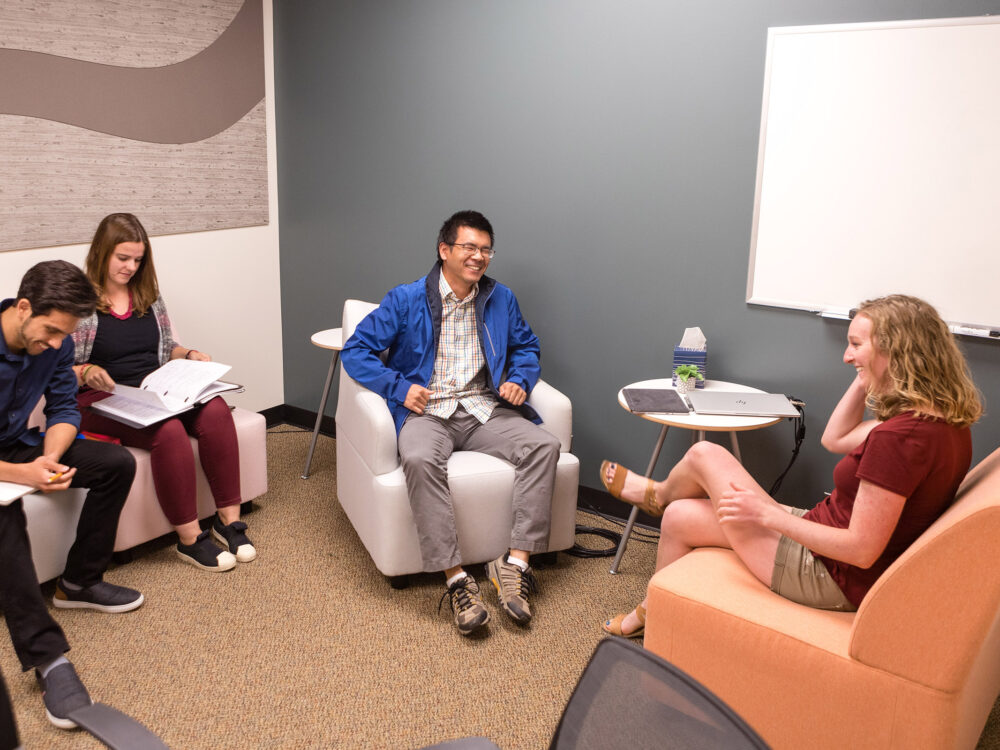What is the Counseling and Career Development Clinic?
Hear from Assistant Professor Kody Roper about the services provided by Counseling and Career Development Clinic, and how you can receive free counseling.
CCD Clinic Accepting New Clients for the Spring 2024 Semester

The CCD Clinic will start screening prospective clients for the Spring 2024 semester after January 3, 2024. After screening, if the CCD Clinic is determined to be a good fit for your needs & goals, we will schedule you for weekly, recurring appointments with one of our counselors in training supervised by counseling faculty or a licensed supervisor. These appointments will start Monday, January 22 and continue throughout the 2024 spring semester.
Those interested in working with the CCD clinic should schedule a request for services meeting, linked below. During this call, you will be asked to share what goals and desired outcomes you’re hoping to gain from counseling, and other related questions. This information helps our staff to help connect you with the best fit to meet your goals and needs – either the CCD Counseling Clinic or another resource on campus or in the larger community.
Before scheduling your request for services meeting, please review the “About the Clinic” information below.
About the Clinic

The Counseling and Career Development Clinic is a training and research clinic staffed by master’s level graduate student counselors who work under the direct supervision of Counseling and Career Development faculty and/or licensed mental health professionals. The clinic provides outpatient counseling services, including career counseling, which takes place in rooms 16, 16A, 17, 17A, and 18 in the Education Building.
This is not a crisis or emergency services clinic. If you experience a crisis or emergency, please call 911 or go to the nearest emergency room for emergency services.
The CCD Counseling Clinic offers in-person counseling and Telehealth, depending on clinic availability and fit with the desired goal/ outcome. We are unable to provide Telehealth services to anyone outside of Colorado.
The clinic is free and open to the public; all sessions are confidential. Weekly sessions are available, and there are no session limits applied to clinic visits.
Please note: Our clinic is unable to provide services for staff or faculty within the CSU School of Education or College of Health and Human Sciences.
Additional Resources
If you are looking for additional counseling resources, or we are unable to provide services to you, explore these additional on and off campus resources, as well as how to find care outside of the state of Colorado.

How to find the clinic
Assistant Professor Kody Roper shows you two ways to find the Counseling and Career Development Clinic in the basement of the Education building.
More Information
Cost
Free of charge
Counseling topics
Topics for counseling might include, but are not limited to:
- Career concerns
- Academic concerns
- Relationships
- Loss, adjustment, transition
- Stress and time management
- Handling anger, guilt, and other emotions
If you have a concern in one of these areas or in a related area, we encourage you to take advantage of this opportunity.
Scheduling
If, during the Request for Services meeting, it is determined that the CCD Counseling Clinic is a good fit for your needs and goals, you’ll be scheduled to meet with a counselor-in-training. Appointments are held weekly during a recurring time, and last for up to 50 minutes.
We are not set up to handle crisis situations. Your counselor is only available to you on the day and time of your scheduled session.
We cannot guarantee services or the same counselor for the following semester.
Confidentiality
Confidentiality is important to us. With few exceptions, information about you will be strictly confidential and will be released only when you have given your written permission. Exceptions to strict confidentiality will be discussed when you meet with your counselor.
In each counseling room, there is a small video camera used for supervision and recordings. The sessions are recorded and deleted at the end of the semester. The recorded sessions are used for supervision purposes.


